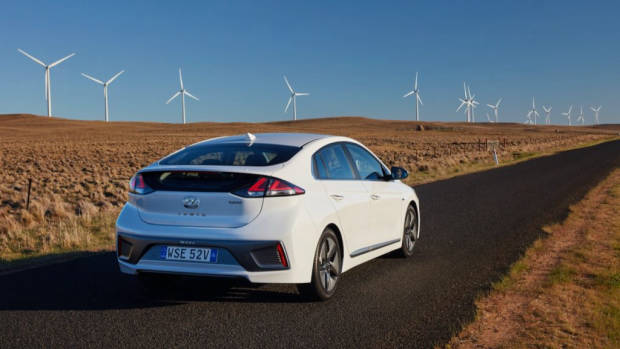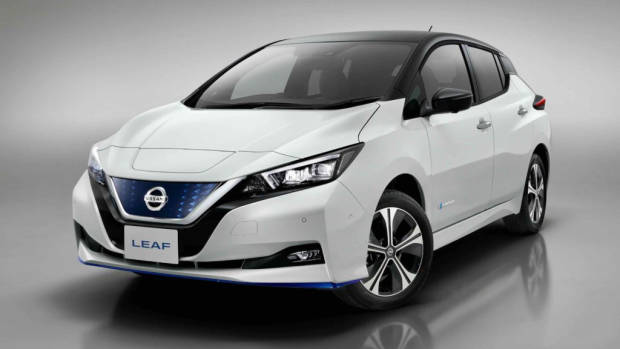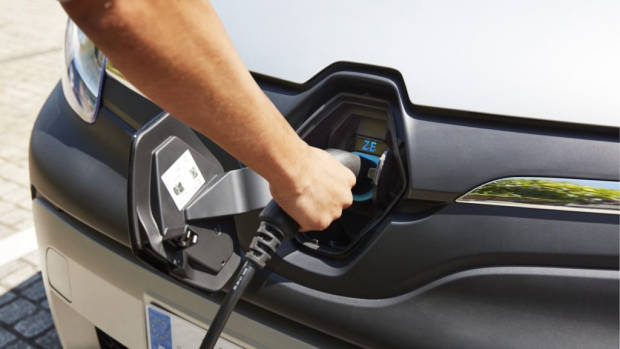-
Car Reviews
- All reviews
- Midsize SUVs
- Small cars
- Utes
- Small SUVs
- Large SUVs
- Large cars
- Sports SUVs
- Sports cars
- Vans
Latest reviews
- Car News
-
Car Comparisons
Latest comparisons
- Chasing Deals
The Australasian Fleet Management Association (AFMA) has today released a report in conjunction with AGL on EV adoption in fleet sales. The report found that three key reasons were preventing larger fleets from transitioning to electric vehicles, and they mirror many concerns of private consumers.
AFMA reached out to a large group of fleet management companies; 177 in fact. In total, these companies manage around 70,000 vehicles in Australia. That equates to 7 per cent of total new car sales as recorded in 2019 – so significant numbers.
Within the report, AFMA asked questions pertaining to the identified hurdles – nearly unanimously, the private companies reported that lack of incentives from the federal government was one big reason for sticking to ICE cars in fleets.
Unsurprisingly, respondents cited high initial purchase costs as another barrier to EV adoption in fleets. Currently, there are just three pure electric vehicles on the market below $50,000, with the only options to squeeze under the magic number the Nissan Leaf and Hyundai Ioniq.
Finally, the report noted the limited availability and choice of electric vehicles as a significant barrier. In the United States, Ford is targeting fleet-heavy sales with their F-150 due some time in 2020. The only commercially viable EV sold in Australia right now is the Renault Kangoo ZE with 200km of range, and almost no one seems to know that even exists. The AFMA also determined that poor infrastructure implementation was a significant barrier to fleets taking on the new technology.
The report isn’t aimed to bring doom and gloom to the industry, though. AFMA Executive Director, Mace Hartley said: “The information and insights in this report are designed to inform and empower suppliers of products & services to Australian fleets, as well as policymakers at all levels of government”.
Instead, the AFMA aims to provide a framework and insights to regulatory bodies and assist businesses that want to green up their image.
AFMA found that out of 66,000 vehicles including passenger cars, SUVs, light and heavy commercial vehicles, only 1,161 vehicles in fleets were pure EV or PHEV vehicles 3,361 were series-parallel hybrids. The vast majority (35,660) were diesel, with 26,398 petrol vehicles. In total less than 33% of survey respondents were running any electric vehicles in their fleets.
In 2020 EV adoption, in general, hasn’t spiked; compared to September 2019 total EV sales are up just 165 units to 1,225 total. Despite the rocky global business conditions caused by the Covid pandemic, AFMA found that 53 per cent of respondents did not change their purchasing habits, though 25 per cent indicated greater caution. So this alone doesn’t account for low levels of adoption.
It did not come as a surprise to Chasing Cars that most of the reasons provided by the survey respondents mirror the concerns of private buyers. While petrol is relatively affordable in Australia, and there is little investment in EV charging stations – though that is changing rapidly – there will be resistance to change.
While infrastructure is vital, the market also needs more options. Hugely popular segments like one-tonne utes will be key in driving both the private and fleet buyers into greener buying decisions.
Latest news
About Chasing cars
Chasing Cars reviews are 100% independent.
Because we are powered by Budget Direct Insurance, we don’t receive advertising or sales revenue from car manufacturers.
We’re truly independent – giving you Australia’s best car reviews.



